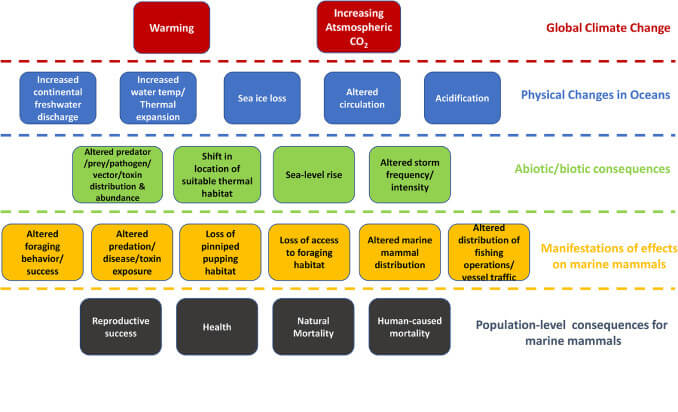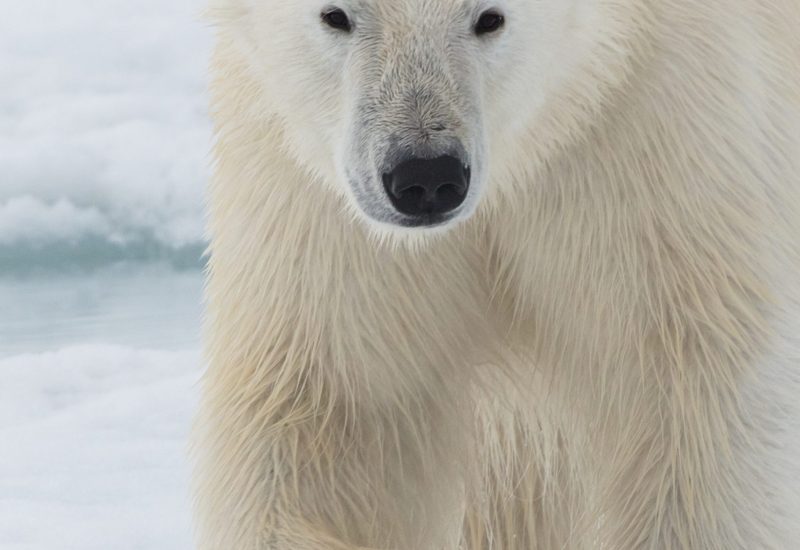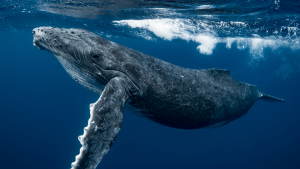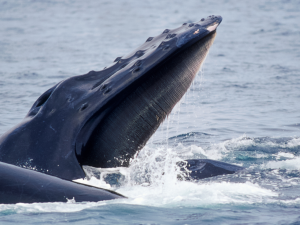Scientists from the Marine Mammal Commission have published a review of the effects of climate change on marine mammals in US waters.
The fundamental driver of climate change in the global oceans is increasing atmospheric carbon, which results in increased air and ocean temperatures, ocean acidification, loss of sea ice, and increased fresh-water discharge from melting ice and river outflows (IPCC). These changes foster both abiotic (sea-level rise, altered storm activity) and biotic (food web) ecosystem responses. Marine mammal responses to food web alterations (e.g., shifts in range, distribution, phenology, migration routes, diet) have physiological consequences (e.g., changes in body condition, health), as well as influencing individuals’ exposure to predation, pathogens, toxins, and risks associated with human activities, and this ultimately can affect reproductive success and survival. It is important to recognize that while climate change-related ecosystem alterations may have negative effects on some species, they can benefit others.






